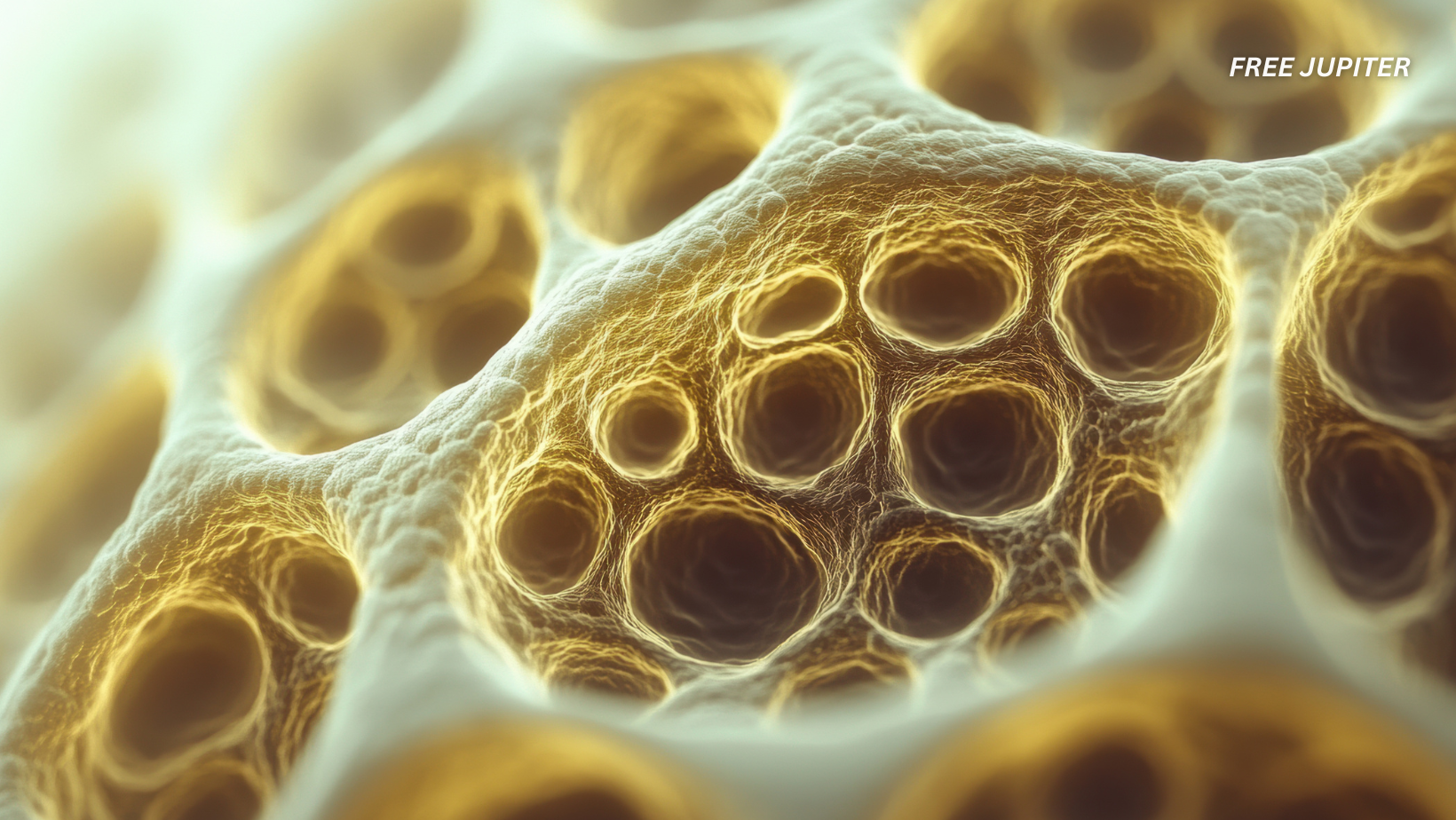Friendly Note: FreeJupiter.com shares general info for curious minds 🌟 Please fact-check all claims—and always check health matters with a professional 💙
You’ve done everything right. You counted calories, swapped chips for carrots, got your steps in, and maybe even made peace with kale. The number on the scale finally dropped—and for a while, it felt like a fresh start. But months later, the pounds quietly crept back, and you’re left wondering: What gives?
Turns out, your fat cells may be holding a bit of a grudge. According to recent scientific studies, even after significant weight loss, fat cells retain a kind of biological “memory” of their former, fuller selves. This built-in recall system can make keeping the weight off harder than losing it in the first place.
Wait—Fat Cells Have Memory?
Not memory in the way you remember birthdays or your Wi-Fi password, but a deeper, biological kind of memory. Scientists have discovered that when you become overweight or obese, your fat cells undergo something called epigenetic changes.
Epigenetics refers to changes in how your genes behave, not the genes themselves. Think of your DNA as a piano. The piano doesn’t change, but the music it plays—your gene activity—can shift dramatically depending on which keys are pressed. These “musical instructions” can be influenced by your lifestyle, diet, stress levels, and even your body weight.
Obesity presses a specific set of keys on that piano, essentially rewriting the score your fat cells are playing. These changes stick around, even if you lose weight later. So while your body may shrink, your fat cells keep operating on the “obese” setting.
Read more: Heart Attack Deaths Are Way Down—But Something Else Us Killing Us Instead
Inside the Fat Cell: What’s Actually Happening?
At first glance, fat cells (also called adipocytes) might seem like simple storage lockers for excess energy. Eat too much, move too little, and your body tucks the extra calories away into these cells for a rainy day. But fat cells are far more than passive storage units—they’re metabolically active, hormonally chatty, and surprisingly complex.
When someone becomes obese, these fat cells don’t just grow bigger; they also undergo a fundamental shift in behavior. They start operating differently on a genetic level, thanks to a process called epigenetic reprogramming.
Suppressed Genes: When Fat Cells Lose Their Identity
Perhaps most intriguingly, genes that should be active in healthy fat cells often go quiet after obesity. These include:
- Genes involved in lipolysis, or the breakdown of stored fat
- Genes regulating adiponectin, a hormone that helps control blood sugar and reduce inflammation
- Genes that maintain insulin sensitivity, crucial for managing how your body uses energy
So even though the number on the scale might go down, fat cells that once lived through obesity behave more like veterans of a metabolic war—cautious, overreactive, and not entirely back to normal.
Why This Matters: The Yo-Yo Effect, Explained
This phenomenon could help explain why so many people struggle with “yo-yo dieting”—the cycle of losing weight, then regaining it (sometimes with interest).
If your fat cells are biologically wired to favor their former state, your body could be nudging you back toward it—through slowed metabolism, increased hunger, and reduced energy use. You might be working hard to keep the weight off, but your cells are quietly conspiring to bring it back.
And unfortunately, this effect doesn’t vanish with time. Even people who undergo drastic interventions like bariatric surgery—where the stomach is surgically reduced—still show signs of these fat cell memory markers.
Read more: Scientists Reveal The Minimum Amount Of Exercise You Need To Offset Sitting All Day
Mouse Models Back it Up
To further test the theory, researchers ran experiments with mice. Some were made obese by feeding them a high-fat diet. Then, the mice were slimmed down through a leaner diet.
Later, all the mice—including those that had never been obese—were re-exposed to the high-fat diet. The result? Mice that had previously been obese gained weight much faster and more dramatically than their never-obese counterparts.
This adds more evidence to the idea that once fat cells undergo obesity-triggered changes, they don’t forget. They’re primed to regain weight more quickly than they would have if they had never been altered in the first place.
A Look at the Bigger Picture: Why This Research Matters
These findings are more than just frustrating news for anyone trying to keep the pounds off—they’re a call to rethink how we treat obesity.
Until now, many weight-loss programs have assumed that once someone reaches a healthy weight, they’re on equal footing with someone who was never overweight. But this research says otherwise. The body carries a biological memory of its past, and that memory could make maintenance uniquely difficult for former obese individuals.
Knowing this, future weight-loss strategies could become more personalized. Scientists are now exploring:
- Targeted therapies that reset fat cell gene activity
- Drugs that reverse epigenetic markers of obesity
- Tailored fitness and nutrition plans based on an individual’s weight history
Instead of treating weight loss as a finish line, it may be more accurate to think of it as the halfway point of a much longer journey—one that continues at the cellular level.
So, What Can You Do About It?
This may sound like an uphill battle, but it’s not hopeless. Understanding that biology plays a role in weight regain means you’re not “lazy” or “unmotivated” if the pounds return. In fact, it’s proof that weight maintenance is more complex than calories in vs. calories out.
Here are some practical takeaways:
- Be patient and consistent. The changes in your cells won’t reverse overnight, but a long-term healthy lifestyle may slowly ease them.
- Focus on inflammation-fighting foods. Think leafy greens, berries, fish, and whole grains. These may help counteract some of the gene activity linked to obesity memory.
- Strength training and muscle-building can help rev up your metabolism and keep your energy-burning engine strong, despite what your fat cells remember.
- Get enough sleep and manage stress. Both are tied to gene expression and hormone balance, which can affect how your body stores fat.
- Talk to your doctor or a specialist. If weight regain is persistent, a personalized program that considers your weight history might offer better results than generic advice.
Read more: Alzheimer’s Might Not Be A Brain Disease After All: Scientists
Fat Memory Isn’t Destiny—But It’s Real
Ultimately, the idea that fat cells have a “memory” doesn’t mean you’re doomed to regain weight. But it does mean your body might be playing by a different set of rules than someone who’s never been overweight. And that’s important knowledge to have.
Science is only just beginning to unravel how deep this memory goes and how to rewrite it. In the meantime, understanding your biology can help you be kinder to yourself—and maybe a bit more strategic—on your wellness journey.
Disclaimer: The information in this article is for general informational purposes only and is not medical advice. We are not doctors, and this website is run as a family hobby project. Always consult a qualified healthcare professional before making decisions about your health. Please fact-check any claims and use this content as a starting point, not a substitute for professional guidance.










